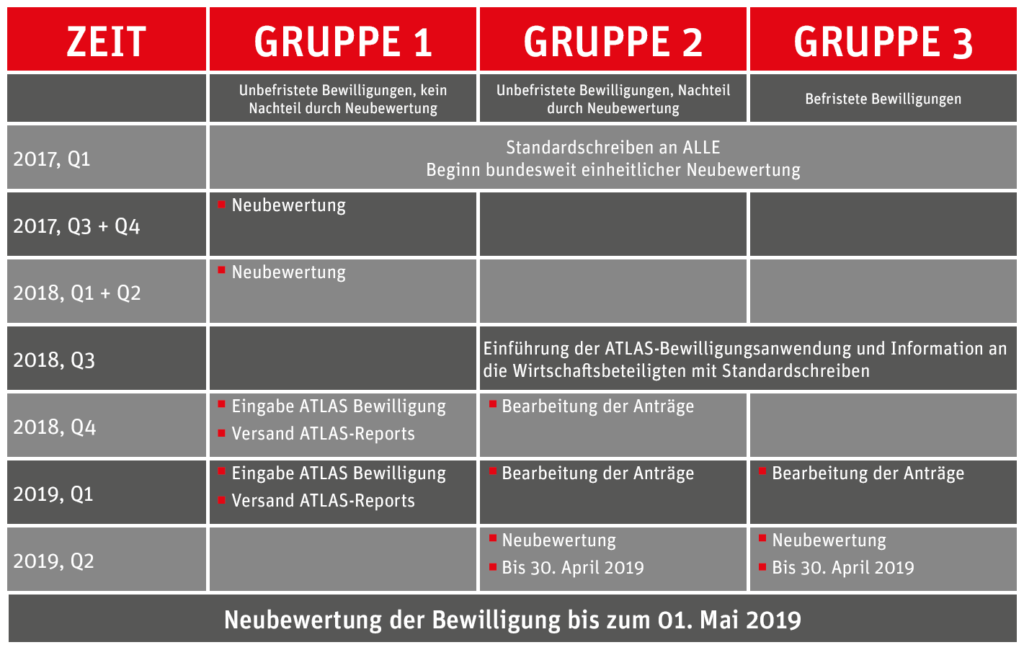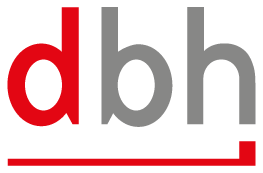What are the consequences for your company?
Reassessment of authorisations
Companies in Germany are currently receiving mail from their main customs office, as the existing permits have to be revalued or reissued. This is made necessary by the Union Customs Code (UCC) in force since 1 May 2016 and the related legal assessment criteria.
- What do you need to consider when reassessing by customs?
- What role do the Authorized Economic Operator (AEO) and the questionnaires for self-assessment play in this?
Answers are given in our white paper.
Authorisations: Everything new through the Union Customs Code
The Union Customs Code (UCC) provides that companies benefiting from customs simplifications will be re-evaluated by the customs administration. The local competent main customs office must check whether the holdings have Union Customs Code established criteria for the use of customs authorisations Meet. Nationwide, the customs administration has to re-evaluate more than 70,000 permits. The revaluation affects all customs procedural facilitation except the Authorised Exporter (EA).
Review criteria for reassessment
In the course of the reassessment, the customs administration shall examine the following criteria, depending on the authorisation:
- No serious or repeated breaches of customs and tax rules and no offences in the course of its economic activities
- Satisfactory accounting system
- Solvency
- Practical or professional competence for the activity carried out
- AEO-S: Existing appropriate safety standards
What is the timing of the reassessment?
Companies do not have to take action themselves, but are contacted by their competent main customs office. Each company receives only one cover letter; whether it has one or more authorisations. With this cover letter, which the main customs offices have been sending since mid-March 2017, they inform the companies concerned of the process of the revaluation, the obligations to cooperate and all documents to be submitted.
In the first step, unlimited authorisations (group 1) where the revaluation does not result in a disadvantage (e.g. collateral). The evaluation is expected to be completed before 1 May 2019. These include, inter alia, the authorisation to become an authorised exporter, AEO-C and AEO-S. In a second step, the authorisations (Group 2) which, after the end of the transitional period from 1 May 2019, must meet stricter requirements/criteria under the UCC (e.g. collateral). These include customs warehousing procedures and registration procedures with exemption from presentation.
You can find the authorization in which group in an overview on the website of the Customs Administration.
Validity of existing customs authorisations
Stock licences issued in definitely for groups 1 and 2 are valid until their revaluation is completed.
Temporary group 3 authorisations (e.g. active and outward processing, temporary use) must be reapplied in good time before the end of their validity on 29 April 2019. These authorisations shall be reissued and shall not be covered by the revaluation.
These authorisations will expire from 30 April 2019 or will be revoked on 1 May 2019 if they expire beyond 1 May 2019. The reassessment letter sent by the main customs offices will also contain further guidance on the re-issue of authorisations under the Union Customs Code.

Overview of the timetable for customs reassessment of authorisations from 2017 to 2019.
Questionnaire on self-assessment
Since the introduction of the Questionnaire, the Authorized Economic Operator (AEO) has been used for self-assessment applications. This has also been the basis for applying for authorisation to become an authorised exporter for a number of years.
The Customs Administration has published on its website that the reassessment of the eligibility criteria to be examined will be carried out using the questionnaires for self-assessment. Each company shall be informed by the competent main customs office of which parts of the questionnaire are to be issued for the revaluation of the authorisations.
Overview “Parts of the question catalog”
- Supplementary questionnaire for revaluation
- Part I – Information about the company
- Part II – Previous compliance with customs regulations
- Part III – Accounting and Logistics System
- Part IV – Solvency
- Part V – Practical or professional qualifications
Of course, customers can get help answering questions about data backup measures (3.6) and questions about the protection of computer systems (3.7).
Procedures
Not only the principles for the proper keeping and storage of books, records and documents in electronic form as well as data access (GoBD) refer to necessary technical and technical documentation. These are becoming increasingly necessary and mandatory throughout the customs environment in order to ensure the legally compliant handling of customs processes and the correct procedure for the verification of legal bases (e.g. the EC Dual-use Regulation). Responsibilities within a company can also be specified hereby.
Procedural instructions, documentation and similar documents are also a useful basis for answering the questions in the catalogue on self-assessment. Individual processes do not have to be described in the questionnaire, a reference to a corresponding documentation is sufficient. The prerequisite for this is, of course, a corresponding topicality. dbh will be happy to assist you with the creation.
AEO-C requirement for revaluation
Companies wishing to continue to benefit from an exemption from filing in the registration procedure or, for example, to benefit from reduced overall security, require authorisation to a SEO-C for this ease of procedure.
AEO-C Authorisation requirement:
- Entry in accounting/exemption under Art. 182 (3) UCC (import)
- Reduced overall security in accordance with Art. 95 (3) UCC
- Self-control under Art. 185 (2) UCC
- Central customs clearance in accordance with Art. 179 (2) UCC
AEO-C Grant benefits:
- Authorisations for all special procedures (Art. 214 (2) UCC)
- Authorisation of custodians (Art. 148 UCC)
- Authorisation of total collateral
- Write-down procedure
What changes will this make in ATLAS?
In the release AES 2.4 (March 2018), the approval number for the Simplified Registration Procedure is calculated in accordance with the Article 166 UCC (former Authorised Exporter) in preparation for the innovations extended from 12 to 35 posts. From a technical perspective, however, the structure remains unchanged for the time being.
It remains to be seen what further changes will result from the reassessment of the authorisations in ATLAS.
dbh supports you in reassessing your authorisation
If you need assistance in the re-evaluation of your authorizations and the associated completion of the questionnaire and the preparation of procedure instructions and documentation, dbh will of course be on hand to advise you.
Your request for “Re-evaluation of authorisations”
There are currently no new dates for webinars. However, you are welcome to send us a request for the “reclassification of permits”. We will answer your questions as soon as possible. We will be happy to inform you about new dates for webinars.
Your contact to dbh
You have a question?
You have a question? Then write us via our contact form.
Your contact to our sales department
Your contact to the dbh sales department
+49 421 30902-700 or sales@dbh.de
You are interested in our products and consulting or need help with your dbh software? Our sales team will advise you to find the perfect solution for your company.


